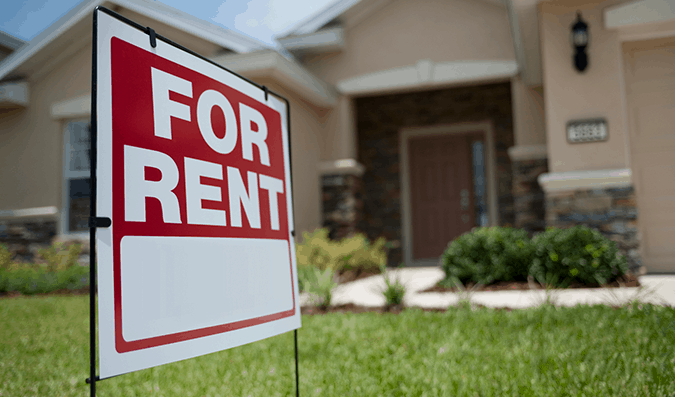While all investments inherently come with varying degrees of risk, investing in rental properties can be a wise business move for a number of reasons. Aside from its long-term investment potential, having a rental property provides regular cash flow and numerous tax benefits. So many homeowners, like you, probably find themselves on their search engine of choice, looking up “how to rent a house.”
So, whether you’re planning to rent out your old home after moving into your new forever home or thinking about buying a separate unit to add to your investment portfolio, you can expect substantial financial returns – as long as you understand how the process works and do things right.
Tenant Planet’s Step-by-Step Guide on How to Rent Your House

Know your whys.
Before going into the rental property business, ask yourself why you’re doing it. Why do you want to rent out your house? This move can make perfect financial sense under three conditions:
- You want to keep it as an investment property and wait for the property value to appreciate before putting it in the market;
- The current housing market condition is not on your side;
- You want to create an alternative source of passive income.
Moreover, this is the most logical option if your property is:
- Located in areas with high demand that can command higher than average rental prices. Rental prices in areas such as Boise, ID; Chesapeake, VA; Fresno, CA; Greensboro, NC; and Toledo, OH recorded a steep increase during the past year, according to Apartment List’s National Rent Report of 2021, while the demand for rental units in urban areas, luxury areas, up-and-coming neighborhoods, and around colleges and communities with impressive job growth continue to increase.
- Offering enticing amenities for renters. Long-term renters are looking for properties in desirable locations, especially those in close proximity to work and schools, and with newer or well-maintained appliances, fixtures, and flooring. Some renters are also looking for a pet-friendly place while others prefer properties that offer easy access to seniors and people with disabilities.
Do the math.
With rental prices increasing by 15% to 20% from 2019 to 2021, it’s easy to see how landlords can make substantial monthly income from their properties. To have a more accurate estimate of your income potential, set a reasonable rental price for your property (consider the rental home characteristics, rental value of similar homes, local rent control laws, and other factors that affect changes in the market) and calculate the costs associated with renting (mortgage payments, maintenance and repairs, insurance, property taxes, HOA fees, and vacancy costs).
If you break even – or better yet, make profit – after deducting the costs from the total rent amount, this option is definitely worth it!
Make it rentable.

Once you’ve decided to become a landlord, you need to learn the ropes on how to rent a house and prepare it for future tenants. However, getting your house rent-ready entails more than just making sure it looks good. It should also meet all the municipal and state housing codes.
How do you ensure that your property is 100% rent-ready? Here’s how.
- Give every room in your house a thorough cleaning. A clean house makes a favorable impression on potential renters and allows you to command better rent prices.
- Increase lighting to make your home look more inviting. Replace light bulbs and switches that are not working properly.
- Hire a professional to check on your electricity, heating, and plumbing. Everything should be functional before the move-in day.
- Check all appliances (including the oven, dishwasher, washer and dryer) to verify that there are no performance issues.
- Repair holes in the wall and give it a fresh coat of paint.
- Clean the flooring and replace it, if necessary. Go the extra mile and have the carpets professionally cleaned.
- Take care of minor repairs. Replace damaged or missing doorknobs, locks, and handles, change the HVAC filter and smoke detector batteries, upgrade window treatments, mow the lawn and plant grass seeds on dead spots, and clean gutters.
Get ready for the job.
The financial gains of managing a rental business may be substantial, but nobody said that being a landlord is an easy job. In reality, it is the exact opposite. Landlords are expected to do more than just prepare the property and collect the rent.
If you’re doing all the work by yourself, expect to take care of the marketing, promotion, and financial aspects along with all the other tasks, which include tenant screening, lease agreement preparation and enforcement, and maintenance and repairs.
Decide if you need expert help.
Being a landlord can be more than a full-time job, so if you don’t have the time, experience, or the necessary skills and connections in running a property rental business, consider hiring outside help.
However, since the success of the business hinges on who you choose to do the work for you, it’s in your best interest to hire a professional property manager with expert knowledge on how to rent a house. This entails additional costs that will eat up a portion of the profits but it can guarantee your peace of mind knowing that the business is in capable hands.
Moreover, hiring a credible property manager can free up your time, which is one of your most valuable resources, and give you the freedom to choose how to spend it.
Get Professional Property Management Help When You Need It

Managing rental properties isn’t easy. It can be particularly overwhelming if you’re new in the business, don’t have enough time to devote to the job, or are living at a considerable distance. Fortunately, there is an easy yet cost-effective way to circumvent these limitations and get things done while ensuring the profitability of your business. How? By hiring a professional property management company like Tenant Planet.
At Tenant Planet, we will make your investment work for you. We’ll take care of the hard work so you don’t have to go out of your way or spend countless hours learning the ropes of the business. Interested in partnering with us? We are, too!
Please visit our main website or request a proposal to learn more about us and our services. You can also email me at Pedro@tenantplanet.com for your questions or comments.





